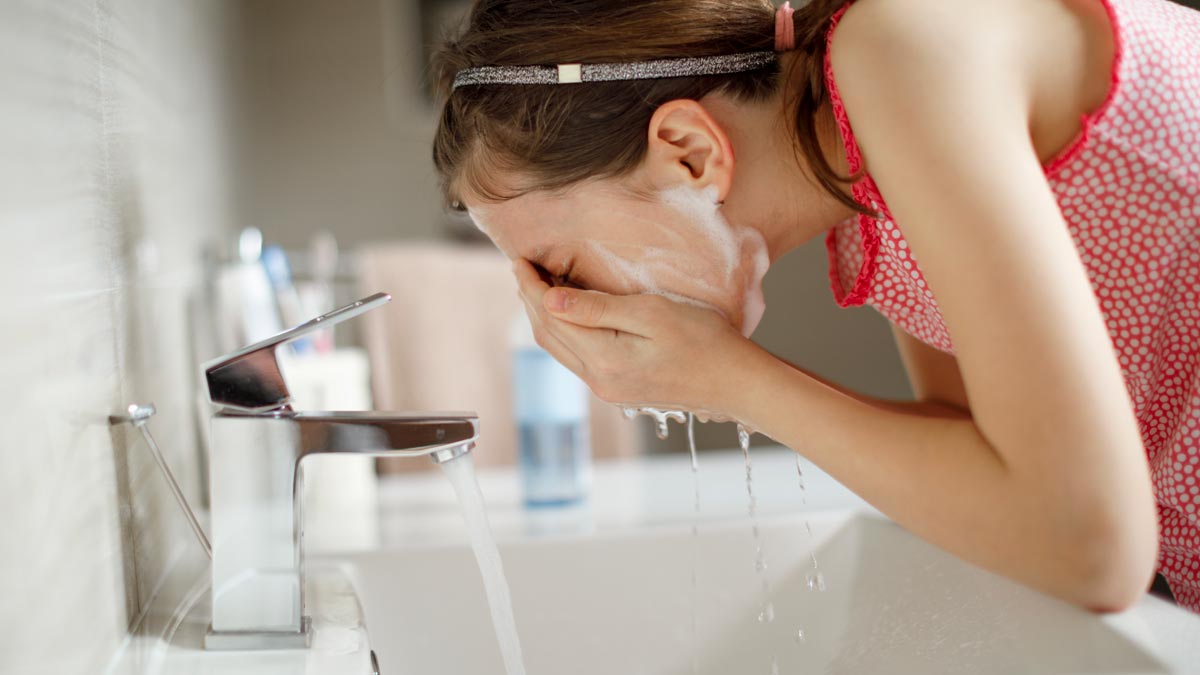
Taking care of our skin is a lifelong process. While our specific cleansing routines need to evolve as we age, preventative measures are always vital in maintaining healthy skin.
Top tips: Avoid the sun, wear sunscreen and moisturize.
My No. 1 piece of advice to all of my patients is to protect the skin they’re in. There are two crucial elements to skin care that never change throughout our lives: shielding our skin from the sun and moisturization.
Every tan or sunburn is evidence of sun damage. Start early with protection by staying out of the sun whenever possible and using sunscreen. Be sure to apply sunscreen to your hands, arms, neck, chest, legs and face.
Also, don’t forget the sunscreen on overcast days. Damaging UV rays can still reach through the clouds and harm your skin. These rays will also reflect off snow and ice during the winter. That’s why wearing sunscreen needs to be a year-long habit.
I also encourage my patients to use a gentle daily moisturizer. Frequent moisturizing helps maintain your skin’s integrity by replenishing the water we naturally lose throughout the day. This keeps your skin from becoming dry, itchy and irritated. Well-hydrated skin is healthy skin.
Dodge bad habits to keep your skin healthy.
There are some bad habits you’ll want to abstain from if you want your skin to look as healthy as possible. One of those is smoking. Smoking is detrimental to your overall health and also prematurely ages skin. It causes skin discoloration and increases wrinkling.
Messing with your skin is also a bad habit. It’s true what your mother told you: It’s a bad idea to pick, scratch and rub at your skin. Picking at your skin can lead to scabbing, bleeding, occasional scarring, discoloration and can inadvertently cause infections. Scratching will only make the itch worse and further inflame the area. Rubbing the skin is just as bad as scratching and will also lead to more inflammation, irritation and worsening itch.
Maintaining a well-balanced diet that includes green, leafy vegetables and fruit is ideal for your skin’s health. Avoid processed sugars, fried foods and high-fat diets. I also recommend steering clear of any extreme, highly restrictive or fad diets.
Of course, time spent in a tanning bed is a bad habit. For optimal skin health, avoid them entirely, but especially stay away from tanning beds that use ultraviolet A (UVA) bulbs.
Our skin tends to become drier and more sensitive as we age.
As we age, our skin becomes more sensitive and is more easily irritated. That’s why the cleansing routine you had in your 20s isn’t ideal for your 50s. In general, your skin will gradually become less oily and drier through the decades.
In your 20s: If your skin is oily, your dermatologist may recommend a salicylic acid or the stronger benzoyl peroxide wash. At this age, I recommend avoiding harsh astringents or toners. They’re not necessary and can strip the natural oils from your skin.
In your 30s: Transition to a combination skin cleanser. A gentle cleanser is really all that is needed for most skin types.
In your 40s and beyond: Avoid harsh or medicated cleansers. Instead, opt for fragrance-free and creamy-based cleansers.
Retinoid treatments can be used at any age. In your 20s, they can help with acne. As you get older, retinol products can also combat aging by stimulating blood flow and increasing collagen production.
However, a note of caution: Don’t feel compelled to buy complicated, multi-step regimens or be fooled into equating cost with quality. Stick with a simple program that you can use consistently and won’t break the bank.
Steps to avoid sagging and bruising.
We lose elasticity in our skin as we get older. Consistent hydration becomes extra important to keep it healthy. It may be necessary to moisturize several times a day, especially in areas that dry out more easily, such as our hands.
Consider using creams, as well. Creams are more moisturizing than lotions because they have higher oil content. Serums with antioxidant vitamins C and E can also be helpful for hydration, along with ingredients such as hyaluronic acid.
Weight-bearing exercises are also important for maintaining a healthy skin appearance. We naturally lose muscle mass as we age, and that contributes to sagging skin. Healthy muscle composition will help to reduce this.
Our skin is more prone to bruising as we get older. Sun protection can be helpful, especially in areas where bruising can become more prominent, like our hands and arms.
Start your skin care regimen early on and maintain it consistently to keep your skin healthy, hydrated and revitalized.

Routine visits to a dermatologist can lead to better skin health
Find out how the experts at Ohio State can help.
View services and schedule




